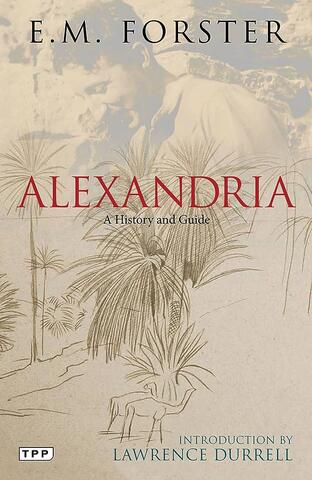
E.M. Forster, Alexandria: A History and Guide.
Forster (1879-1970) is one of my favorite novelists, and I particularly like Howards End. The film version starring Emma Thompson, Anthony Hopkins and Helena Bonham-Carter is superb, and it captures some of the subtlety of perception and insight of the novel itself. The same might be said of A Room with a View, also adapted to the screen. Forster’s work shares some similarities with Virginia Woolf’s work, particularly with Mrs. Dalloway and To the Lighthouse. Both novelists are as much concerned with sensibility as with incidents, the building blocks of plot. Though both outlived the Edwardian age—Woolf died in 1941, Forster in 1970—and even though Woolf is commonly spoken of as a modernist, I think there is something Edwardian about both their sensibilities. Both treat emotional states and the shared opinions that typify particular social classes in particular historical periods almost as a painter would do—as colours, tones, atmospheres. Clearly both of them write with something of a poetic feeling.
It may be surprising that Forster wrote a travel book, Alexandria: A History and Guide first published in 1922. Surprising perhaps, and yet how lucky we are to be able to view this ancient city through the eyes of someone so perceptive and knowledgeable as this great novelist. Speaking as the author of a history and guide to another great city in the eastern Mediterranean, Istanbul: City of Forgetting and Remembering, 2012, I can vouch for the central role of these cultural centres during the period when the Roman Empire declined and morphed into Byzantium, and when these centres were later absorbed into the Islamic kingdoms of the region. The story of Antony and Cleopatra in Alexandria is there to spice up the story of Rome, and anyone with an interest in classical learning must feel a pang when thinking about the fire that destroyed the great library of Alexandria with its treasures that are lost to us forever. And if you have an interest, as I do, in the development of the three great related monotheistic religions that came out the Mediterranean—Judaism, Christianity, and Islam—it’s very instructive to read Forster’s explanations of such obscure movements as Gnosticism, Arianism, Neo-Platonism, Monophysism and the other examples of spiritual enthusiasm that flourished in the early years of our Common Era. The book is enough to move intrepid travellers to book a flight to Egypt, and for the rest of us to travel there in our favourite reading chairs.
Richard Tillinghast’s 2022 book, Blue If Only I Could Tell You, is his thirteenth collection of poems, in addition to five books of creative nonfiction, including Istanbul: City of Forgetting and Remembering and Journeys into the Mind of the World: A Book of Places.










